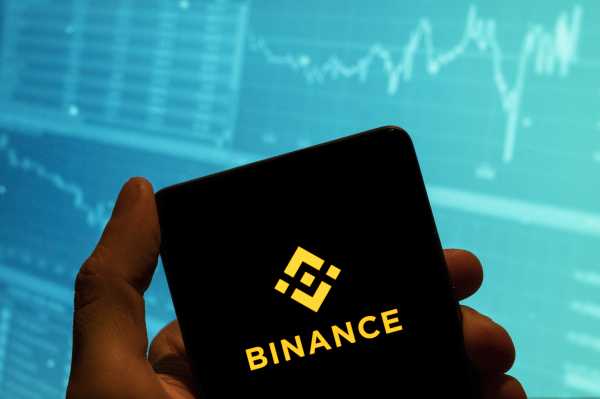
Li Zhou is a politics reporter at Vox, where she covers Congress and elections. Previously, she was a tech policy reporter at Politico and an editorial fellow at the Atlantic.
Binance, the world’s largest cryptocurrency exchange, is dealing with some major uncertainty after getting hit with a lawsuit from the US’s Commodity Futures Trading Commission, or CFTC. It’s the latest example of the increased federal scrutiny the industry has been under following a wave of scandals in the last few years.
The lawsuit, which was filed on Monday, alleges that Binance intentionally evaded US laws including failing to register in the country and allowing Americans to trade crypto derivatives, which is barred for retail investors. Binance CEO Changpeng Zhao has called the lawsuit an “incomplete recitation of facts” in response. Since then, investors who use the platform have pulled out $1.6 billion, a significant uptick in withdrawals, though experts note that Binance’s reserves may be big enough to withstand such a hit.
The lawsuit could have bigger impacts for Binance’s business long-term, according to a report from CNN’s Allison Morrow. If the CFTC suit is successful, it could result in “hundreds of millions” in fines as well as a possible ban on Binance’s ability to register as a derivatives trader in the US down the line. That would deal a serious blow to Binance’s derivatives revenues, 16 percent of which comes from the US, CNN notes.
“The cryptocurrency industry has recently faced several significant challenges, beginning with the Terra/Luna meltdown, followed by FTX, and now Binance,” says MIT Cryptoeconomics Lab founder Christian Catalini. “Concerns regarding Binance’s compliance and regulatory practices have been raised for some time, and the evidence brought forth by the CFTC is quite damning.”
What this could mean for crypto overall
For those who may not know Binance as well, it’s one of the biggest crypto exchanges in the business and it handled approximately $23 trillion in trades in 2022. Previously, Binance also reportedly considered bailing out cryptocurrency exchange FTX when it declared bankruptcy amid its founder Sam Bankman-Fried’s legal troubles, though it ultimately decided against doing so. Binance is well-known globally and is a dominant exchange abroad, while other exchanges like Coinbase are more established in the US.
One of the core issues in the Binance lawsuit is that it willfully tried to avoid US regulations by allowing American customers to engage in illegal purchases and trades via VPN and other tactics that wouldn’t give away their location. The CFTC suit also alleges that the platform hasn’t done enough to combat potential money laundering and other crimes that it could be used for.
The CFTC’s actions highlight how regulators are continuing to confront crypto companies, and also follow another lawsuit from the Securities and Exchange Commission against Ripple Labs, another crypto company.
Recent chaos with companies like FTX has likely emboldened regulators, says Duke University finance professor Campbell Harvey. “Given these meltdowns and bankruptcies, it’s made it a lot easier for regulators to pull the trigger,” he notes.
Such regulatory actions are unlikely to harm the crypto market overall, however, experts say. This week, for instance, the price of bitcoin has remained stable amidst the Binance news. And although Binance has seen large withdrawals, they appear to have the reserves to deal with it and aren’t facing a bank run comparable to that of Silicon Valley Bank. “We don’t know the sort of money in their war chest,” says Campbell. “It’s not clear that has a very big impact on their bottom line.”
Experts caution, too, that US officials need to find a balance between regulations that are too strict, which could have the effect of driving companies outside of the US, and providing a clearer framework for crypto to operate under that protects customers.
“If regulators push too hard, they would just leave. My personal opinion is that it would be a bad thing because then the US doesn’t have a chair at the table,” says William Johnson, a finance professor at University of Massachusetts Lowell.
Sourse: vox.com






